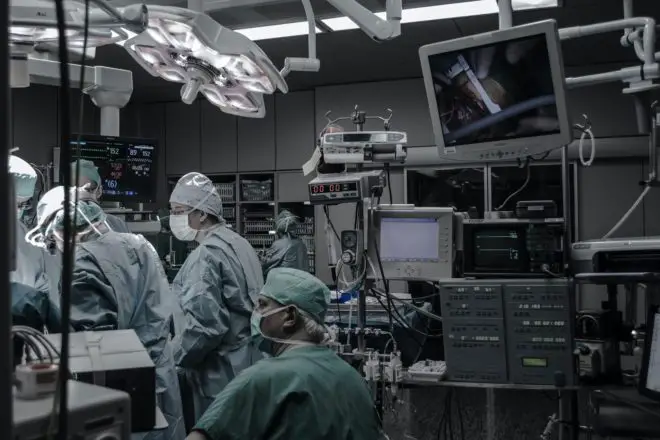We are going to talk about the medical device clinical specialist position. This a common position that many people are unfamiliar with before getting into the industry. Medical devices are complex products. They are used for surgeries and procedures with little room for error. The technology is rapidly evolving so physicians and clinical staff have to continue to learn throughout their careers. This means they need training. A sales rep can only do so much. A seasoned sales rep may become an expert with their product. They could effectively make a sales pitch for the device in their sleep. So in many instances a sales rep can provide training. But for more in depth education and training needs medical device manufacturers hire clinical specialists to work with customers.
Related: How To Get Into Medical Sales As A Nurse?
What Is A Medical Device Clinical Specialist?
The clinical specialist role isn’t a one size fits all position. It will vary based on the company and product. Ideally, companies want someone with a clinical background in the diagnostic or procedural setting the device is used. The could mean a lot of things. I have seen clinical specialists with backgrounds in nursing, respiratory therapy, imaging, ophthalmology, etc. These folks will bring a deeper clinical understanding than the average sales rep. This means they can train and add value for customer’s using a new medical device.
Clinical specialist positions are a great way for clinical folks to transition into the commercial world. It is a soft way to gain business and sales experience while leveraging a clinical background. Some clinical specialists eventually transition into traditional sales roles.
Related: How Do I Get Into Medical Device Sales With No Experience?
What Does A Clinical Specialist Do?
A clinical specialist spends time on-site supporting customers. Typically, this means a lot of case support. A clinical specialist will be present to make sure things go well with the product during surgeries and procedures. Also, a clinical specialist may be involved with the installation and implementation of a new capital equipment. They may be at the same customer site for multiple weeks as a new piece of medical equipment goes into service.
A Day In The Life Of A Clinical Specialist
These positions require extensive travel. Many companies like to hire travelers. Travelers are clinical folks such as anesthesia techs, nurses, ultrasound techs, etc. that take short term contracts for hospitals that are short staffed. Companies like these candidates as they know they are willing to travel. Unlike a sales rep that may manage a small geography, clinical specialists will be on the road supporting multiple sales reps. This means not only driving, but a lot of time on flights.
Related: Day In The Life Of A Medical Sales Rep
The lifestyle can be quite different for folks used to working at a hospital. Life on the road and days spent working with sales reps makes for a unique job. You have to be always on. These position are salaried which is different from the hourly pay model on the clinical side. Regardless, the roles offer tremendous opportunity to gain commercial business experience and try something new.
These roles require more than just a clinical background. Medical device companies want the brightest and most articulate clinical folks to train and educate customers. Medical device clinical specialists must develop customer service, presentation, and sales skills.
Pros And Cons Medical Device Clinical Specialist Jobs
The travel perks open up a whole new door for many clinical folks coming from the hospital environment. This includes airline and hotel points in addition to a company car and free meals on the road. The key is to make sure the lifestyle is sustainable. The excitement of a free meal can lose appeal after years and years on the road.
Related: Life Of The Traveling Medical Sales Rep
Another challenge in many positions is the control over your schedule. These positions are considered clinical support roles at many companies. These positions exist to support the sales side of the organization in closing business. While sales reps have autonomy to set meetings and control their schedule, this may not be true for clinical specialists. The schedule of a clinical support role is based on the customer’s preferences. This means these roles typically have less flexibility than a sales position.
It can be challenging to work with sales reps all day. Lets be honest, sales reps can be demanding. They are focused on making sure a customer is satisfied so they can close business. Things can go sideways and sometimes it is beyond anyone’s control. Also, some customers can be completely unreasonable. A clinical specialist will have to navigate the complexities of difficult sales reps and unhappy customers. While this may not be every day, it is part of the job.
Related: 5 Biggest Challenges In Medical Device Sales
